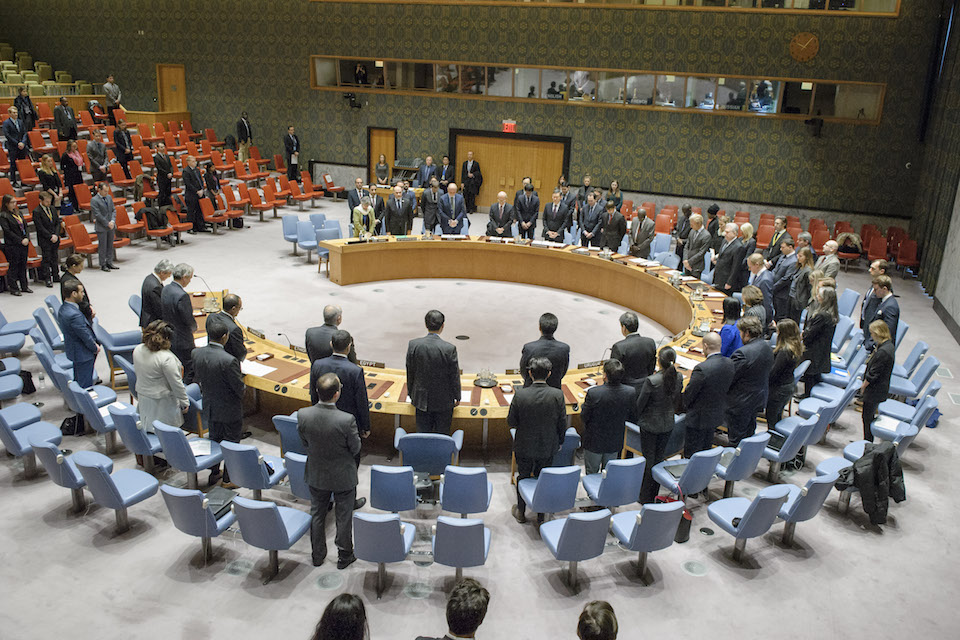"The people of Afghanistan have suffered for too long; the human cost simply has been too high."
Statement by Ambassador Matthew Rycroft, UK Permanent Representative to the United Nations, at the Security Council briefing on Afghanistan.

I thank Special Representative Yamamoto for his briefing and for all his and UNAMA’s work in Afghanistan. You have the United Kingdom’s continued full support.
But I also want to pay a particular tribute to Dr Samar, not only the first civil society briefer of our Presidency, but also the first ever woman civil society briefer from Afghanistan to speak before this Council.
It’s taken thirty seven years of Afghanistan being on our agenda for this day to become a reality. And I look to future presidencies to make sure it’s not another 37 years before it happens again.
As so much has been said already about the situation in Afghanistan, I’m going focus just on two core issues; the need to reduce the violence and the ongoing priority of human rights.
The recent abhorrent attacks, underscore the pressing, immediate need for us all to work together to end the violence. The people of Afghanistan have suffered for too long; the human cost simply has been too high.
And now more than ever, a coordinated response is needed – from the Afghan government and Afghan society; from the region; and from the international community. As we know all too well, the violence will only increase in the coming weeks as the winter weather retreats across most of the country. We must focus on achieving meaningful steps from all sides. And this means tackling the terrorists’ sanctuaries, their funding and their logistical support.
I want to pay tribute to the continued sacrifice of the Afghan Security Forces as they perform this dangerous and unrelenting task. They have the United Kingdom’s full support. As the coalition’s lead on the Afghan National Army Officer Academy, we are proud to be helping to train the next generation of Afghanistan’s military leaders.
Second, we must not lose focus on the pressing need to sustain progress on human rights in Afghanistan, as Dr Samar has so eloquently made clear.
The human rights situation today is unrecognisable from 2001. Women now hold 28% of parliamentary seats; something unthinkable under Taleban rule. And in the UK, out of interest, the figure is 29%. Seven million children are now attending school, over 3 million of them girls. Legislation protecting the rights of the marginalised is now in place, and Afghanistan’s new Anti-Corruption Justice Centre held its first trial late last year, in a fair and transparent manner. These are significant steps.
However, as we look to the future of Afghanistan, we should recognise that being better than 2001 is not the benchmark to aspire to. We need to help Afghanistan build on the steps taken so far so that all Afghans can enjoy an even safer, even more prosperous future, one where human rights are a given and not in question.
The UK is doing our bit to ensure progress on a broad range of human rights challenges. We’re helping to increase women’s social, economic, and political participation, and supporting the Government of Afghanistan to reform its electoral system to improve the transparency and credibility of elections. We’re helping fund institutions that empower Afghans to develop human rights monitoring capabilities and we are providing training in International Humanitarian Law to combatants.
And we’re doing so because the United Kingdom remains committed to helping the National Unity Government realise its constitutional and international human rights obligations. And we will continue to support the Government of Afghanistan, local and international NGOs, civil society organisations and international partners to help make this a reality.
Thank you.